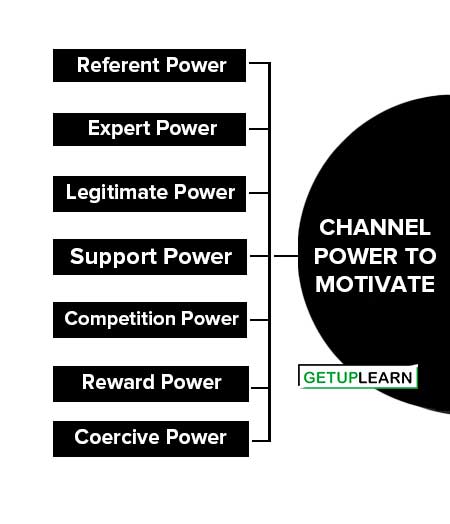Table of Contents
Channel Motivation
The ambitious level of volume and growth targeted by companies needs tremendous efforts from salespersons and channel partners for fulfillment. In order to achieve the desired results companies should keep the channel members highly motivated.
It is the task of the company to make the channel partner feel integrated with the aims and objectives of the company and remind them that they are partners of the company in satisfying the end user. Motivating the channel partner is an important task as companies need to have a major share in the distributor’s mind if they want to lead in the market.
It is a challenging task as it requires designing capacity-building programs, promotional support, product training, marketing research, etc. to make the company’s product more important in the distributor’s mind relative to other products they carry.
Channel Power to Motivate
Channel Motivation starts with knowing the needs of the channel partner and the influencing factor that drives them to perform at the peak of their capacity.
The power format suggested by John R French and Bertram Raven can be listed as the powers of motivation to be used on channel partners to make them more effective and motivated. The channel power is explained below:
- Referent Power
- Expert Power
- Legitimate Power
- Support Power
- Competition Power
- Reward Power
- Coercive Power

Referent Power
This power is associated with the position the company holds in the market. This power gives recognition and respect to the company and as such any intermediary associated with such a company gets the benefit. Companies like Colgate, and Infosys have referent power in their businesses.
Expert Power
It is related to the unique knowledge the company has developed that adds value to the channel partner. This kind of specialized knowledge can be shared by the company with the sales personnel of the distributor in order to help them to perform well.
The company has to continuously keep on upgrading its knowledge base in order to keep adding value to the intermediary. Examples of companies that have developed such knowledge are LG, Maruti, etc.
Legitimate Power
The company has legal rights to enforce the intermediary to do certain tasks. These legal rights are bestowed on the company by virtue of agreements or contracts signed by the intermediary with the company.
For example, the company may enter into a contract with the intermediary regarding the level of stocks to be maintained by the intermediary, and as such the intermediary has an obligation to do so as per the contract.
Support Power
This power is exerted by the company to help its channel partners to increase their volume. The support could be in the form of promotion, subsidies like part of distribution cost or cost of salespeople employed, or it can be in the form of spot cash for good sales performance.
Competition Power
It is the power executed by the company where that generates the feeling of competitiveness among channel partners. Sales contests on targets assigned and other sales parameters are conducted and channel partners are ranked in accordance with their performance.
Reward Power
Reward power helps the company to motivate its channel partner to perform additional tasks through monetary incentives.
It is used in special situations as excessive use of this power may make intermediaries underestimate such rewards. It is used in cases where the channel partner needs to perform specific tasks like 100% placement of a newly launched product in all outlets within a month and so on.
Coercive Power
It is the power of ‘threat’ executed by companies on channel partners in case of any default on the part of the channel partner. It could be in the form of discontinuation of support or even the partnership. By exercising such powers companies do motivate intermediaries to comply with its norms.
But excessive use of such powers may have a negative impact on channel members’ behavior and as such it should be used only in certain cases where needed.
Companies must design motivational programs to ensure that the channel partners are directed toward customer satisfaction and are cooperative and friendly. Motivation can be done positively by providing incentives, subsidies, promotional support, merchandising support, credit, etc.
At times channel partners can also be motivated through negative terms such as cutting down on incentives or other benefits. Encouraging channel partners is vital for the smooth flow of all the functions.
Companies do enter into contracts or agreements in terms of market coverage, maintenance of stock level, technical services, complaint handling, etc. to avoid confusion and to foster a good and mutually beneficial relationship. Companies must aim for long-term relationships with channel partners and make them an integral part of the company through channel motivation programs.
FAQs About the Channel Motivation and Channel Power to Motivate
What are the types of channel power?
These are the types of channel power in channel motivation: Referent Power, Expert Power, Legitimate Power, Support Power, Competition Power, Reward Power, and Coercive Power.
